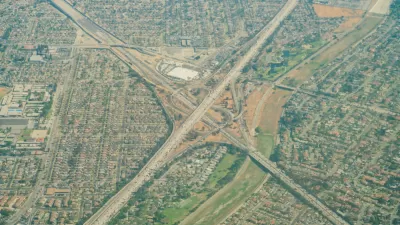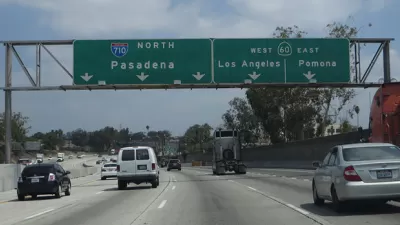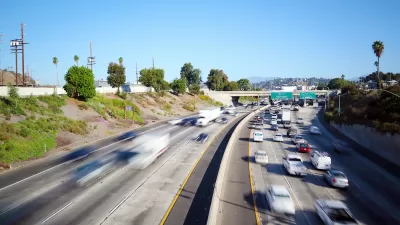Political opposition to the controversial I-605 Corridor Improvement Project is gaining traction on the Los Angeles County Metropolitan Transportation Authority Board of Directors.
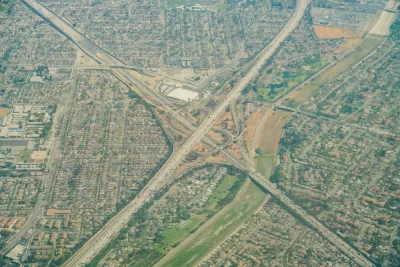
The Los Angeles County Metropolitan Transportation Authority (Metro) Board of Directors hit the brakes on a controversial freeway widening project proposed for Interstate 605 and intersecting sections of interstates 5, 10, and 105 in addition to California State Route 60.
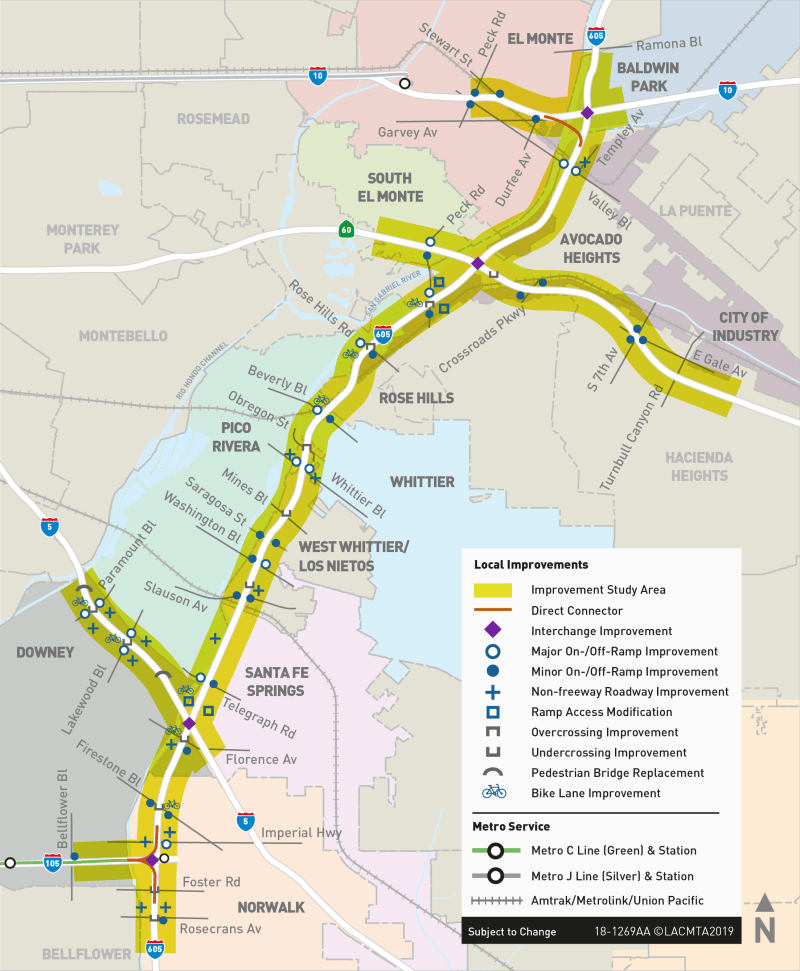
The Metro board unanimously approved a motion to delay the I-605 Freeway Corridor Improvement Project "and to study alternatives that would minimize the demolition of homes," reports Joe Linton.
According to Linton, "Metro’s official statements, including a September 29 letter from CEO Phil Washington, have been largely dismissive" of negative feedback on the project. The Gateway Cities Council of Governments (GCCOG) and the city of Downey are two local jurisdictions cited by Linton as examples of community opposition to I-605 Corridor Improvement Project. The Metro Board of Directors, however, responded to that feedback. Linton provides more detail about the board's actions:
Last week, six boardmembers put forth a motion that delays the release of the project environmental studies (draft Environmental Impact Statement/Environmental Impact Report – dEIR/EIS) until after Metro staff study more alternatives. The motion specified that those alternatives will include one that “minimizes right-of-way impacts” and/or a “Transportation System/Demand Management (TSM/TDM) alternative” similar to what the board approved in place of the canceled $6 billion North 710 Freeway tunnel project through South Pasadena.
Linton also provides details of the widespread opposition to the project expressed by members of the board.
FULL STORY: Metro Board Unanimously Approves Motion to Delay 605/5 Freeway Widening and Instead Study Alternatives

Planetizen Federal Action Tracker
A weekly monitor of how Trump’s orders and actions are impacting planners and planning in America.

Chicago’s Ghost Rails
Just beneath the surface of the modern city lie the remnants of its expansive early 20th-century streetcar system.

San Antonio and Austin are Fusing Into one Massive Megaregion
The region spanning the two central Texas cities is growing fast, posing challenges for local infrastructure and water supplies.

Since Zion's Shuttles Went Electric “The Smog is Gone”
Visitors to Zion National Park can enjoy the canyon via the nation’s first fully electric park shuttle system.

Trump Distributing DOT Safety Funds at 1/10 Rate of Biden
Funds for Safe Streets and other transportation safety and equity programs are being held up by administrative reviews and conflicts with the Trump administration’s priorities.

German Cities Subsidize Taxis for Women Amid Wave of Violence
Free or low-cost taxi rides can help women navigate cities more safely, but critics say the programs don't address the root causes of violence against women.
Urban Design for Planners 1: Software Tools
This six-course series explores essential urban design concepts using open source software and equips planners with the tools they need to participate fully in the urban design process.
Planning for Universal Design
Learn the tools for implementing Universal Design in planning regulations.
planning NEXT
Appalachian Highlands Housing Partners
Mpact (founded as Rail~Volution)
City of Camden Redevelopment Agency
City of Astoria
City of Portland
City of Laramie


























